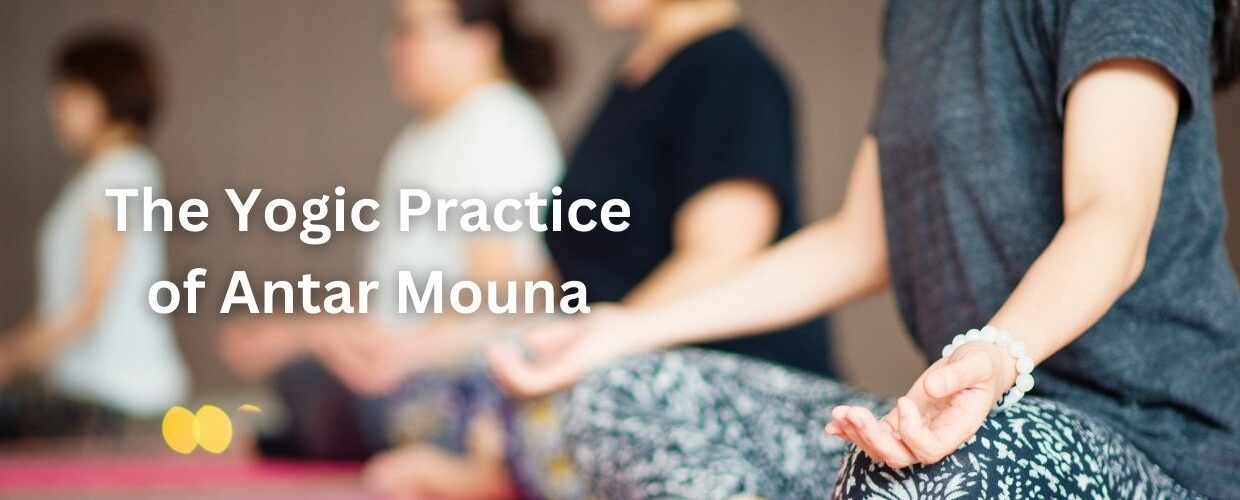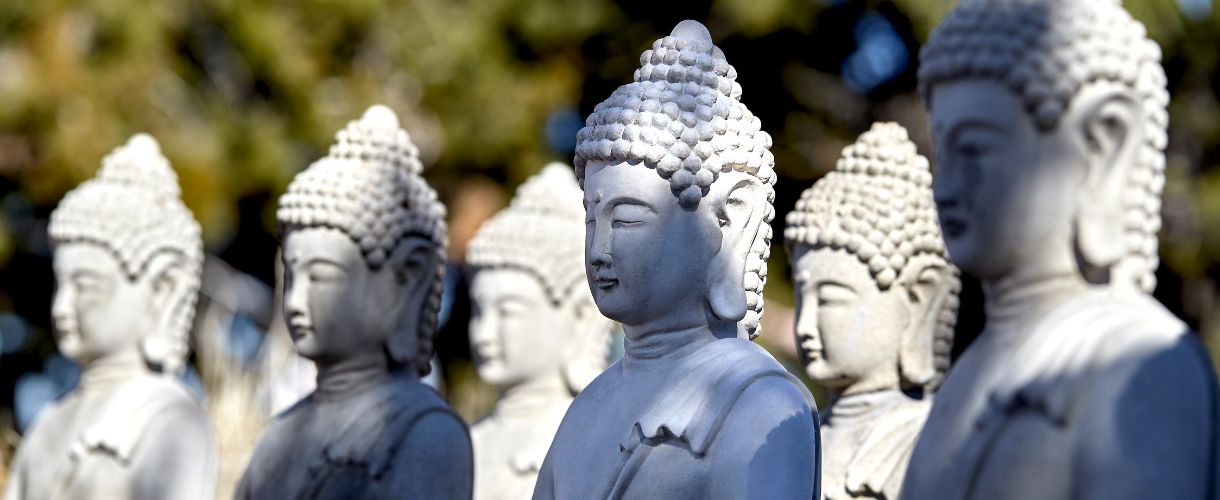
Nirvana Retreats
September 17, 2024
How to Implement Mouna in Your Daily Life
October 8, 2024THE YOGIC PRACTICE OF ANTAR MOUNA
Antar Mouna (antar means ‘inner’, mouna means ‘silence’) is the process by which you unlock the power within you to awaken to the boundless possibilities that lie dormant within the depths of your own mind.
THE NECESSITY FOR MOUNA
We see, hear and experience many things which bombard us at incredible speeds and in amazing amounts. We absorb thoughts, sounds, objects, actions, movements visually, physically, mentally, emotionally etc. However, our observations and understanding rarely have any depth, because we lack the time, and mental band-width, to really observe and process them properly, hence our sense of being overwhelmed.
The conscious and subconscious mind are two interconnected aspects of the human psyche. The relationship between the conscious and subconscious mind is complex. While the conscious mind can deliberate, analyse, and make decisions, it heavily relies on input and guidance from the subconscious. Much of our behaviour and responses are influenced by subconscious processes, such as biases, instincts, and deeply ingrained patterns formed through experiences.
In the bustling chaos of everyday life, it’s easy to overlook the profound forces at work within our own minds. Yet, beneath the surface of a conscious awareness lies a vast and intricate landscape, the realm of the subconscious. This hidden domain holds the keys to understanding our behaviour, motivation, and deeper desires.
Additionally, underneath all the dichotomies that define our lives, beneath the world of change, is a single, underlying reality … call it Brahman or Advaita or the Buddha Mind, or the Tao, or Life itself, or Energy, or call it nothing at all…and that reality is not separate from what we are. What we observe as material bodies and forces are nothing but shapes and variations in the structure of space. Particles are just appearances.
The practice of antar mauna, which amounts to ‘inner silence’, offers access to a treasure trove of insights, information, and spiritual motivation, which allows you to access and understand the interplay between these two aspects of the mind. This is crucial for understanding human behaviour and mental health. You are then able to influence the subconscious mind to promote personal growth, behavioural change, and healing.
VOW OF SILENCE
At the heart of life is a simplicity that is totally beyond words.
Antar Mouna is a practice about something that cannot be put into words: the fact that right at the heart of life, right where you are, right here and right now, a miracle is happening. The miracle is the present moment. It is everything: present sights, sounds, smells, bodily sensations, the heart beating, breathing… It is life itself.
Words will never capture this simplicity and reality, but they can point to it. However, pay too much attention to the pointers and you will end up missing what the pointers are pointing to.
Mouna takes you beyond logic, beyond rationality, beyond thought itself, to the wordless silence at the heart of things. It is your journey into aliveness, into life itself, not into the intellect.
A lot of energy is expended, even wasted while talking, which could be put to better use. If not controlled in time, speech has the power to distract. These distractions surround you, mount up and become overwhelming. In every aspect of sadhana (spiritual practice), speech needs to be limited. When you talk a lot and listen less, the mind is maintained in an extroverted state, and you jeopardise learning. A person who has not cultivated spiritual activities, who cannot stay without company, and talks a lot is said to be rajasic. Remind yourself: two ears, one tongue!
The spiritual practice known as ‘Mouna Vratham’, which means ‘vow of silence’ emphasises the importance of observing self-control. There are unlimited benefits associated with the practice. As you practice the ‘vow of silence’ you will be able to measure each and every word, before uttering it. If you can control your speech, you will also be able to control your eyes and ears.
You will develop and strengthen your willpower, control impulsive statements in the process, and find yourself becoming extremely tactful.
The use of Mouna Vratha as a practice of self-regulation in counselling and psychotherapy will help an individual explore the self in the realm of silence. Helpful in control, channeling emotions in the correct manner, and managing truth, it goes without saying, that it is one of the ethics for yoga teachers. It is an important accompaniment for meditation, as well. Once you are able to make mauna a part of your life, you convert speech energy to spiritual energy.
THE BENEFITS OF MOUNA
In the culture of classical yoga,‘mouna’ is a deeply significant practice for yogis. It helps to create stillness within. Here, you simply observe, without getting involved in any manner. This enables you to enter the stage of pratyahara, withdrawing the mind from sense objects, the fifth stage of the eight-limbed practice of Raja Yoga, according to the Yoga Sutra of Patanjali.
Mouna is an important step on the path. Through its observance, it will slowly become devoid of reactions, become proficient in managing emotions for yourself and for others as well. Furthermore, the process helps you to deepen your spiritual practice. In its fullest form it has far-reaching effects on the human mind and circumstances, as it is the precursor necessary for dharana (concentration) and dhyana (meditation).
STAGES IN THE PRACTICE OF ANTAR MOUNA
The practice of Antar Mouna takes the following stages:
Stage 1: Awareness of sensory perceptions
Stage 2: Awareness of spontaneous thought
Stage 3: Conscious creation and dissolution of thoughts
Stage 4: Awareness and dissolution of spontaneous thought
Stage 5: Thoughtlessness
Stage 6: Awareness of psychic symbols
STEPS IN THE PRACTICE OF ANTAR MOUNA
Anyone can engage in the practice of mouna. To master your mind, you must embark on a journey to unravel the mysteries of the human psyche and delve into the profound realms of consciousness. For deeper clarity, and if you aim to reach liberation through your yoga practice, you will need to follow this process.
Here is the basic process to make ‘Mouna’ a part of your life.
1. Practice Verbal Mouna. Stop Talking.
Mouna doesn’t just mean silence of your words, and it is not simply about just staying silent. Mouna goes much deeper, and is the start of peering into the realm of your conscious mind.
With the practice of mouna, you embrace that part of your mental faculty, the realm of your conscious mind, namely, your mental processing that you are aware of at any given waking moment. This encompasses the non-verbal modes of communication, such as thoughts, feelings, perceptions, and sensations that shape your immediate experience of the world. that you actively experience and can introspect upon.
Your conscious mind is the realm of logical thinking, reason, decision-making and deliberate action. From making decisions to solving problems, your conscious mind serves as the captain of the ship. It’s like the tip of the iceberg, visible and accessible, but it’s only a small part of the whole.
2. Become Introspective
Next we peer into the deeper, more enigma realm of your mind that operates below the level of conscious awareness, your subconscious mind. Here, the waters run deep, teeming with a wealth of memories, emotions, and ingrained patterns of thought and behaviour. It is the storehouse of your past experiences, shaping your perceptions and influencing your actions in ways you may not always comprehend. Consider, for instance, the power of habits. How often do you find yourself engaging in repetitive behaviours without conscious thought? From the way you brush your teeth in the morning to the route you take to work, these actions are driven by the subconscious mind, operating on autopilot based on past conditioning.
The intricate interplay between your conscious and subconscious minds includes processes such as automatic bodily functions, learned behaviours, habits, emotions, memories, and beliefs. While you may not be actively aware of these aspects, they still significantly influence your thoughts, feelings, and behaviour. The subconscious mind is like the major bulk of the iceberg, hidden beneath the surface.With introspection, you become aware of the deeper conditioning and agenda behind your thoughts and speech. This can initially seem frustrating.
Simply observe your thoughts and actions in your day-to-day living, with kindness, empathy and without condemnation or judgement.
3. Practice Non-Verbal Mouna. Develop Mouna Of The Mind.
Mano mouna is the silence of the mind.
It helps you to turn within, to understand, and analyse your own mind.
When the mind doesn’t go outward it turns inward.
Be present to thoughts, feelings and daily activities with a silent mind.
This is also one of the ways you can engage to meditate.
Let what comes, come.
Let what goes, go.
Don’t try to push away what comes.
It’s already here and will pass by itself in time.
Don’t try to cling to what goes.
Grief is natural. Leaving is life. Bless the leaving too.
Let what stays, stay,
Let what dies, die.
Let what lives, live.
Stop interfering with the way of things today.
Just be the wide open space for all of it…
Every thoughts, every feeling,
every moment of boredom or doubt.
Be awareness.
Be the ocean.
Allow the waves.
4. Allow Mouna Naturally.
After you have practiced the first three steps with truth and sincerity, inner silence will come all by itself.
Like the ocean’s tides go in and out,
like the lotus in the warmth of the sun,
we open, we close.
We close, we open.
The goal is not to stay open all the time,
to shame the closing,
to attack ourselves,
when we are less than what could be.
There is no goal, except the looking, the seeing itself,
the willingness to turn towards our experience,
not to fix. but to come closer,
out of the narrative of time,
and saturate our closed hearts with understanding.
Not to transform, but to transmit
all our love, our kindness, into what’s here,
like God holding her creation with such reverence.
With the passage of time, you will
– find thoughts floating through the mind, but without emotions or judgement.
– become a keen listener with excellent listening skills
– speak, after careful consideration of spiritual implications.






